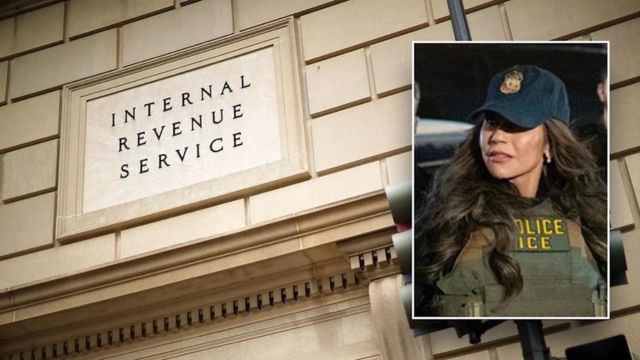The Department of Homeland Security (DHS) and the Internal Revenue Service (IRS) have agreed to let ICE use information about taxpayers to find illegal aliens who can be deported.
Late Monday night, the Trump administration sent a memorandum of understanding to a court. This is to set up rules and a way for ICE to ask the IRS to look into criminal illegal immigrants who have not left the US 90 days after a judge has issued a final order of removal.
As a way to help law enforcement fight illegal immigration, the Internal Revenue Service and Immigration and Customs Enforcement have signed a memorandum of understanding. This sets up a clear and safe process, a Treasury Department spokesperson told Fox News Digital in a statement.
“The bases for this MOU are founded in longstanding authorities granted by Congress, which serve to protect the privacy of law-abiding Americans while streamlining the ability to pursue criminals,” it said. “After four years of Joe Biden flooding the nation with illegal aliens, President Trump’s highest priority is to ensure the safety of the American people.”
A top official at the Treasury Department said that the illegal immigrants were given due process but have been here for more than 90 days after a judge ordered them to leave the country.
A spokesperson for the organisation said that the MOU lays out a plan to keep private public data safe while still letting police investigate crimes.
A senior official said that the Treasury Department is committed to guarding the privacy of law-abiding taxpayers, but in cases of criminal activity, the agency has to help the police.
A draft deal that was published by the Washington Post last month said that ICE would not be able to confirm the addresses of illegal immigrants who have final orders to be deported.
The deal would let ICE give the IRS the names and addresses of illegal immigrants. The IRS could then check those immigrants’ tax records and give the immigration agency their most up-to-date addresses.
Concerns have been raised by some experienced IRS employees who say the narrow exception was only meant for criminal investigations and not for immigration enforcement. They are also worried that the policy will make it harder to collect taxes from people who are in the country illegally but are still required to pay federal taxes.
The agreement comes at a time when President Donald Trump is continuing to deport more people as he promised during the campaign and asking for help from all possible sources to help the immigration officials.









